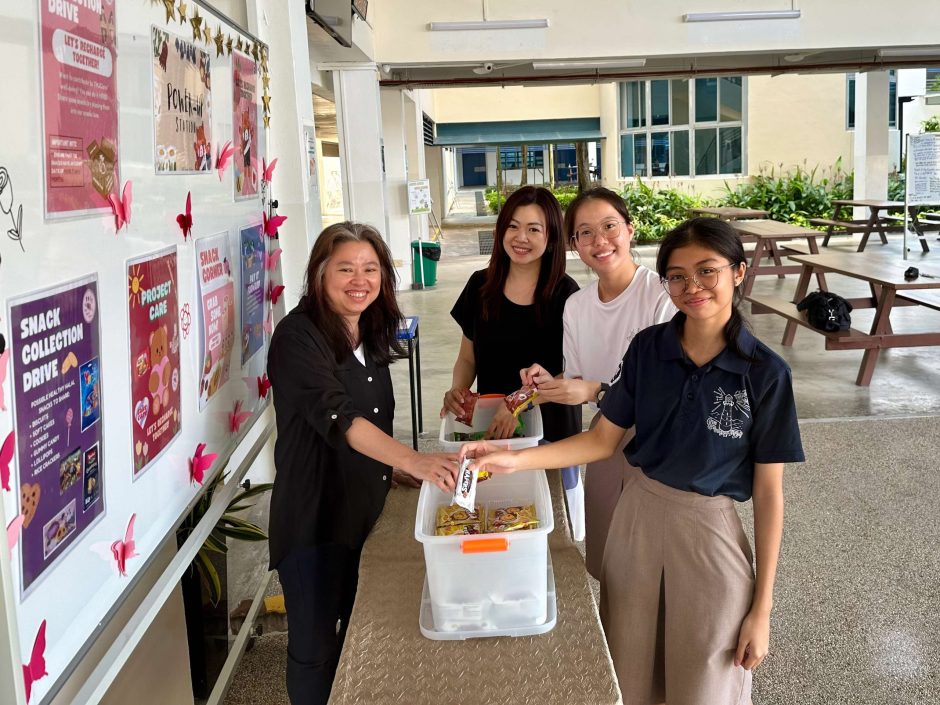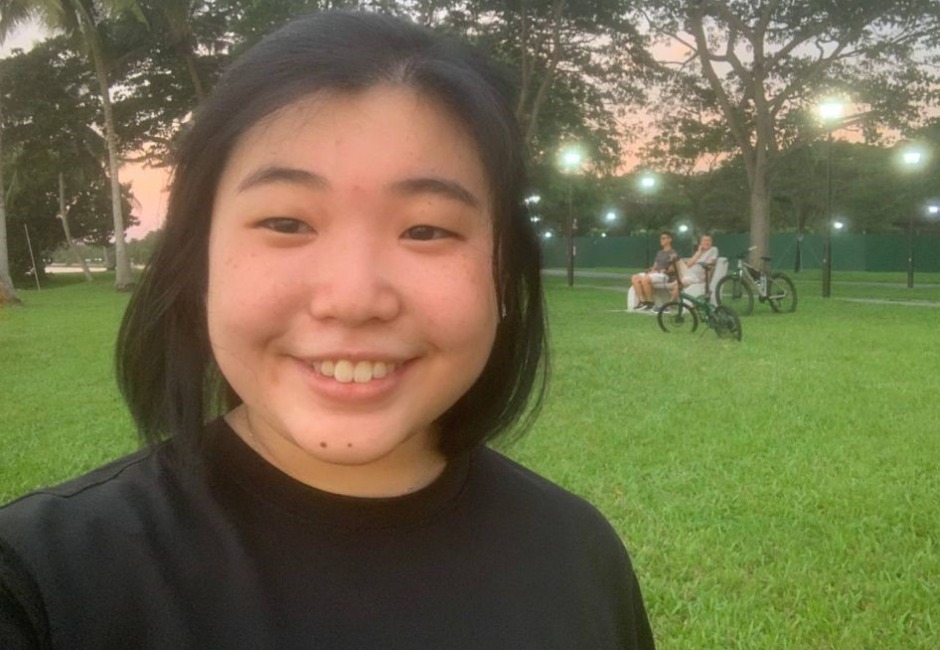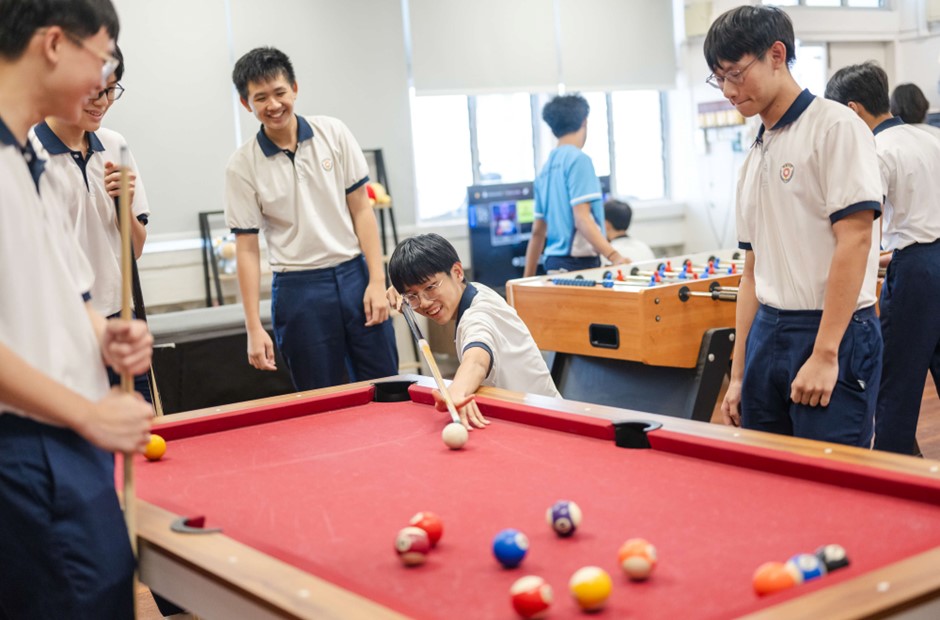When Tampines Meridian Junior College (TMJC) kicked off its night study sessions, some students began staying back every evening to prepare for their A-Levels. But after a long day of classes, it can be a struggle to maintain focus and motivation.
To help students recharge, the college’s Peer Support Leaders (PSLs) added a thoughtful touch: a “Power-up Station” where students can grab snacks and a hot beverage to fuel their study sessions. The initiative operates on a pay-it-forward basis, encouraging students who benefit from the snacks to contribute snacks for others.
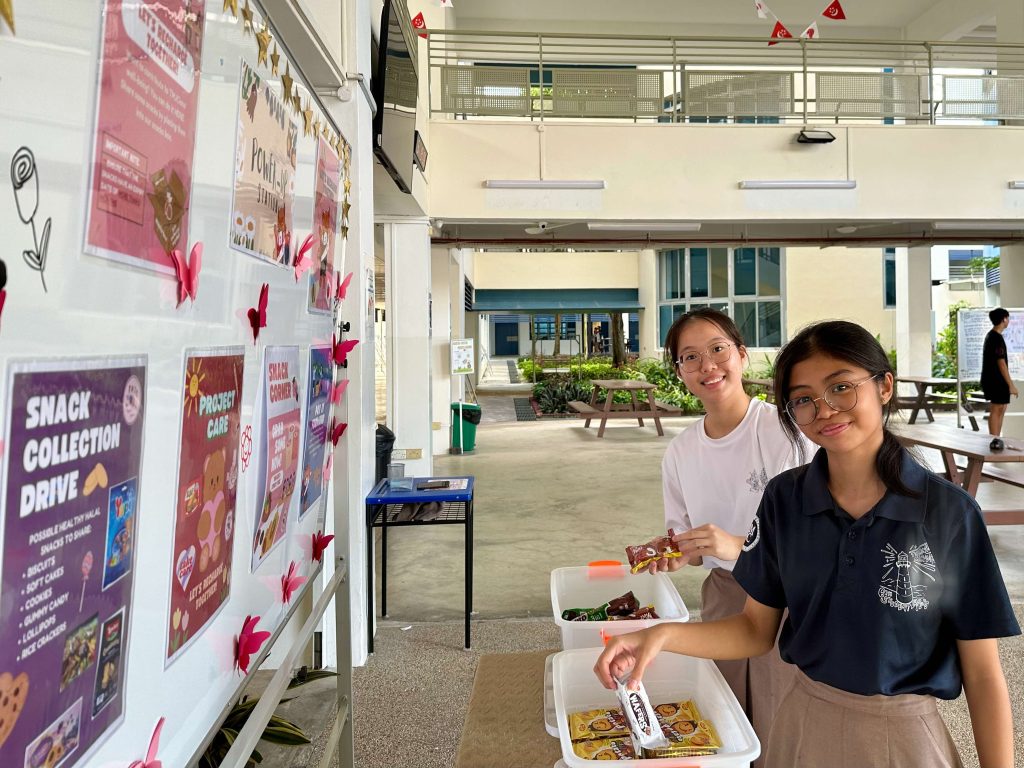
JC2 student Jonathan Khoo tells Schoolbag that these simple comforts have made a big difference for him. As someone who finds it challenging to focus at home, Jonathan has been studying in school until 8.30pm since the night study sessions began. “From the bottom of my heart, I’m thankful (to the PSLs) as this really helps me to go on. Snacks are great, but hot Milo is something else – it’s very helpful for students after a long day of school,” he says.
Shining a light on mental wellness
The Power-up Station is just one of the many initiatives led by PSLs at TMJC. The college launched its peer support programme around 2021, aligning with the Ministry of Education’s broader efforts to foster a supportive school culture.
Pointing out that youths may prefer to turn to their friends when they face issues rather than adults, Mrs Sze Chai Ju, Year Head at TMJC, says, “Peer support can be an effective way to encourage students to be more involved in promoting well-being in school and reinforcing community spirit.”
Currently, TMJC has 61 PSLs who receive specialised training – typically in April – as they step into their roles. The initial training covers a wide range of topics, from how to respond with empathy, managing conflicts to learning positive coping strategies.
The training is followed by sharing sessions at the end of Term 3, where JC1 PSLs come together to discuss challenges they face while supporting their peers. In JC2, PSLs “level up their skills” by co-facilitating selected Character and Citizenship Education lessons alongside their Civics Tutors, raising awareness about mental health, shares Mrs Sze.
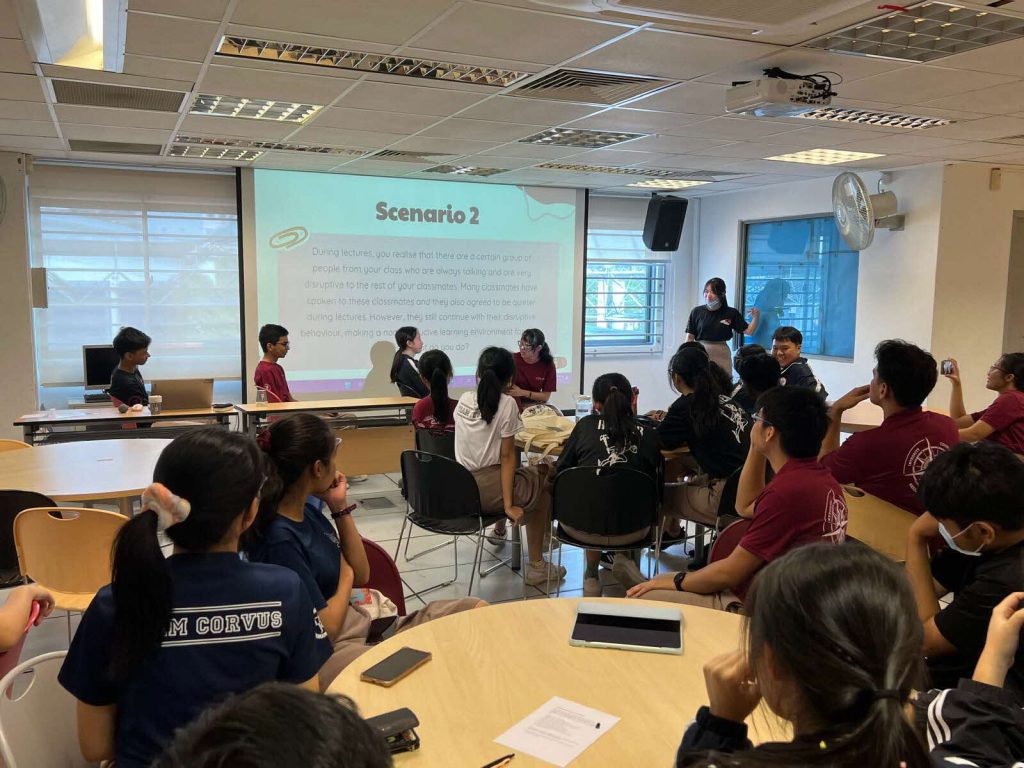
PSLs at TMJC are also given considerable autonomy in initiating, planning and running activities in school, which hones their organisational skills. Activities led by the PSLs focus on raising awareness about mental health, shares Aufa Basirah Binte Hanapi, a JC2 PSL.
“For PSLs, it’s all about mental health and well-being. Our activities focus on self-care and helping students to relax,” she explains. “We’ve also organised parents appreciation week, where we shared how to nurture relationships. These activities are different from those organised by other student leaders – for example, student councillors and Civics Group Chairpersons will focus on outreach programmes and giving back to community while CCA leaders will run activities related to their CCAs.”
One highlight is Project Care, a series of activities spanning three to four weeks, starting in Week 6 of the third school term. This period is crucial for JC2 students, who will be deep into A-Level revision and need support to keep their morale high.
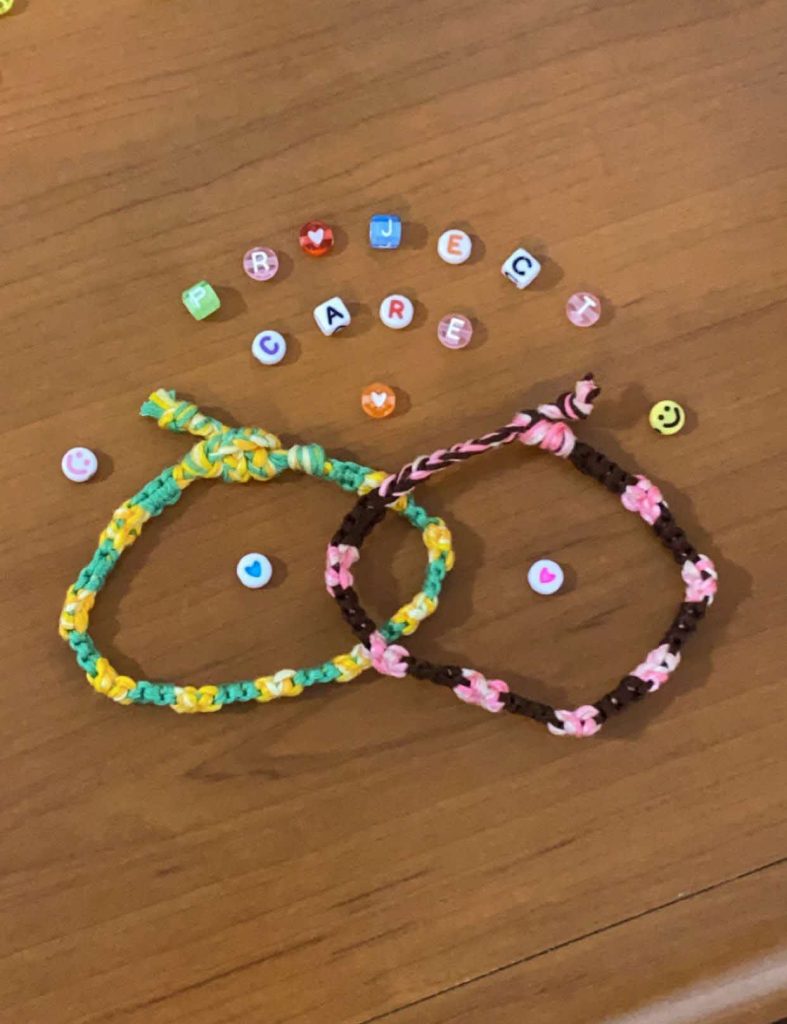
In addition to setting up the night study snack station, PSLs also facilitate assembly sharing sessions, run lunchtime activities and workshops, provide self-care tips and place motivational quotes around the campus.
The resourceful students have also organised a successful initiative, where students can purchase cookies and a personalised note of encouragement to motivate friends as they prepare for their exams.
JC2 PSL Fiona Quek Mei Cho shares, “The response from the students was amazing. I felt their happiness when we handed them the cookies, and in turn, I felt happy too. I was also surprised when my friends bought me a cookie – who knew happiness could be so infectious?”
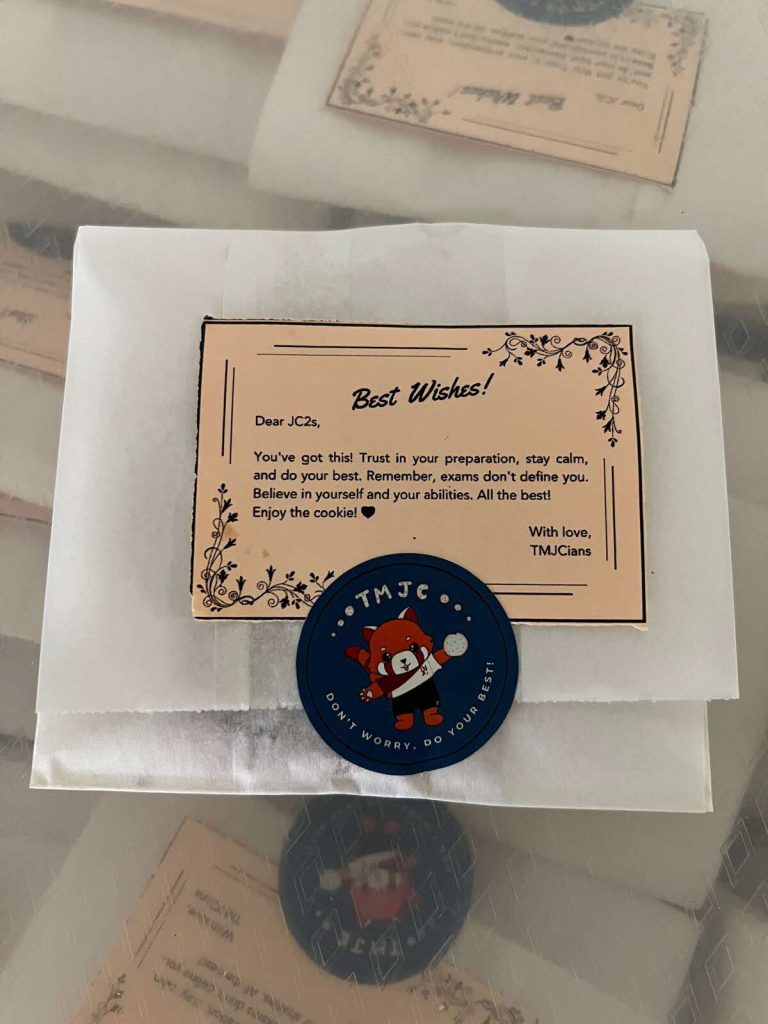
Looking out for their peers
As PSLs, these students act as a “bridge of communication” between teachers and peers who may be facing mental health struggles, says Aufa. Youths may find it intimidating to share their worries directly with teachers or other adults in their lives. Yet, it is in these moments of vulnerability that they need a listening ear.
Aufa’s PSL training has helped her recognise peers who are struggling, even though they may not openly share their difficulties. Recently, she noticed a usually cheerful friend becoming reserved and quiet. After Aufa approached him, he opened up about his problems, many of which were family-related.
“The issues were beyond my capability to help but all he wanted was for me to listen to him, which I did. In the end, he sought professional help,” she says.
Fiona points out that the simple act of peers showing concern and looking out for one another can make a world of difference. “That’s the beauty of peer support. If everyone is only preoccupied with their own stuff, then who is going to look out for one another?” she says.
That said, PSLs are trained to identify red flags, such as signs of suicide ideation. In such situations, they will escalate the matter to their teachers. “My PSL teachers always say we are their eyes and ears. If the situation gets out of hand, I have a duty and responsibility to care for (my peers) by informing my teachers,” says Fiona.
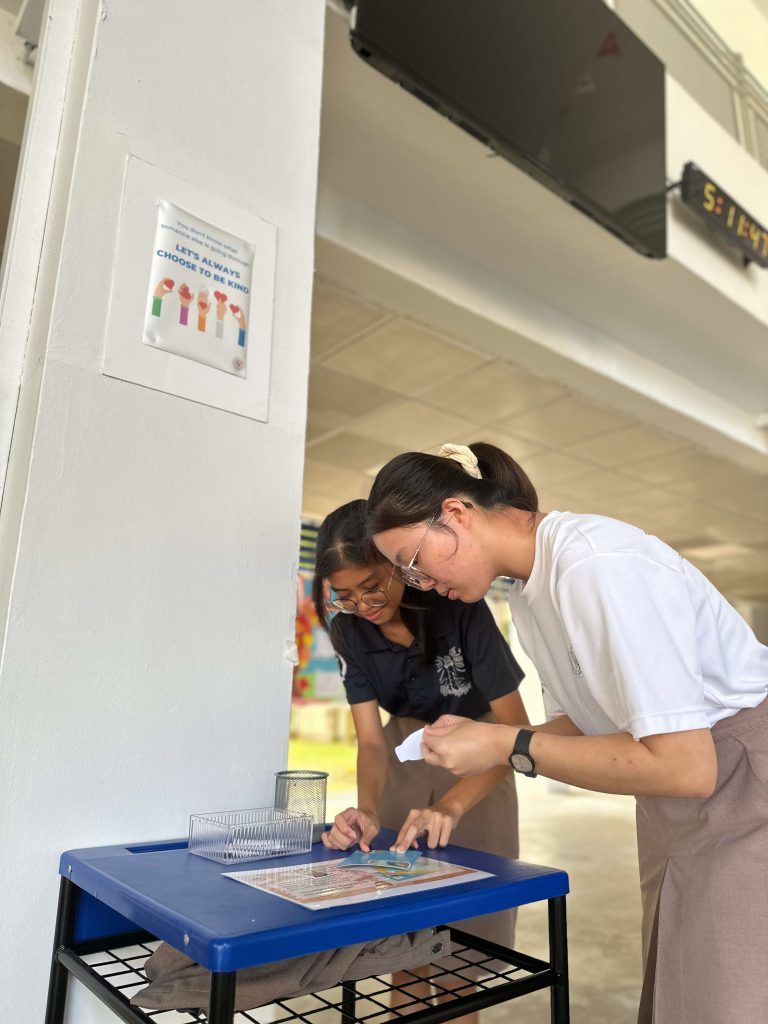
“Being as a PSL has improved my communication skills, and has made me more optimistic and adaptable when facing challenges.”
Fiona Quek Mei Cho, JC2 PSL at TMJC.
The training and experience of supporting their peers have helped both Fiona and Aufa grow as individuals. They believe that their experience will be valuable in the future, when they navigate the complexities of adult life.
Fiona, who used to struggle with social anxiety, feels that her time as a PSL has improved her communication skills. It has also made her more optimistic and adaptable when facing challenges.
Aufa adds, “We’ve learnt to understand people more deeply, and not judge them based on what we see on the outside. I think that this will be useful in the future as we will encounter many different types of people at work and in our relationships.”
Acknowledging that seeking help may not come naturally for some, they want to remind youths to know that they are never alone in their mental health struggles.
“Reaching out to others is never easy, but if you take that first step, things will get better,” says Fiona. “I always tell my friends that whenever they find it difficult to climb up a hill, having someone beside them to encourage and push them along makes things better. We can’t do it alone.”



